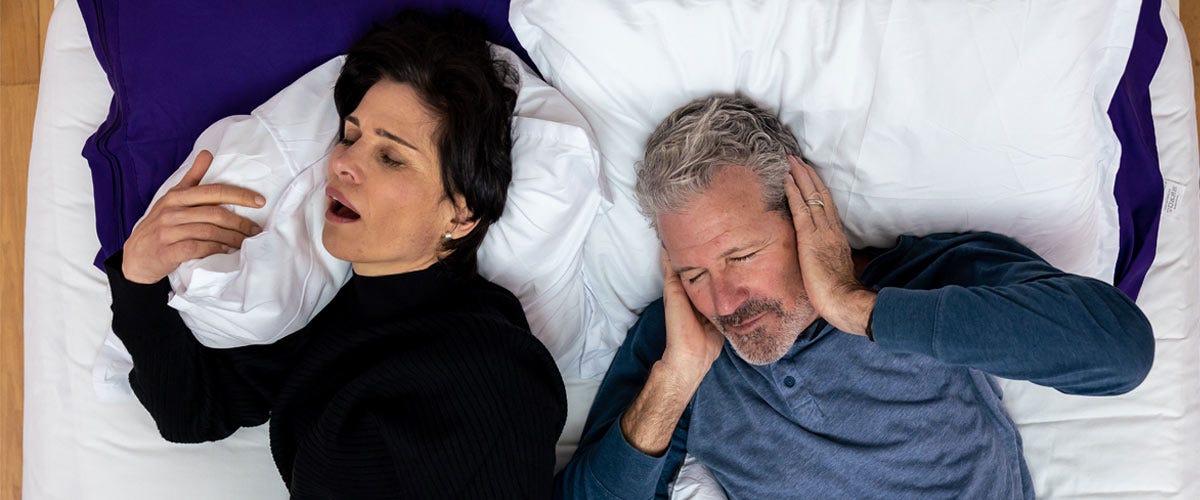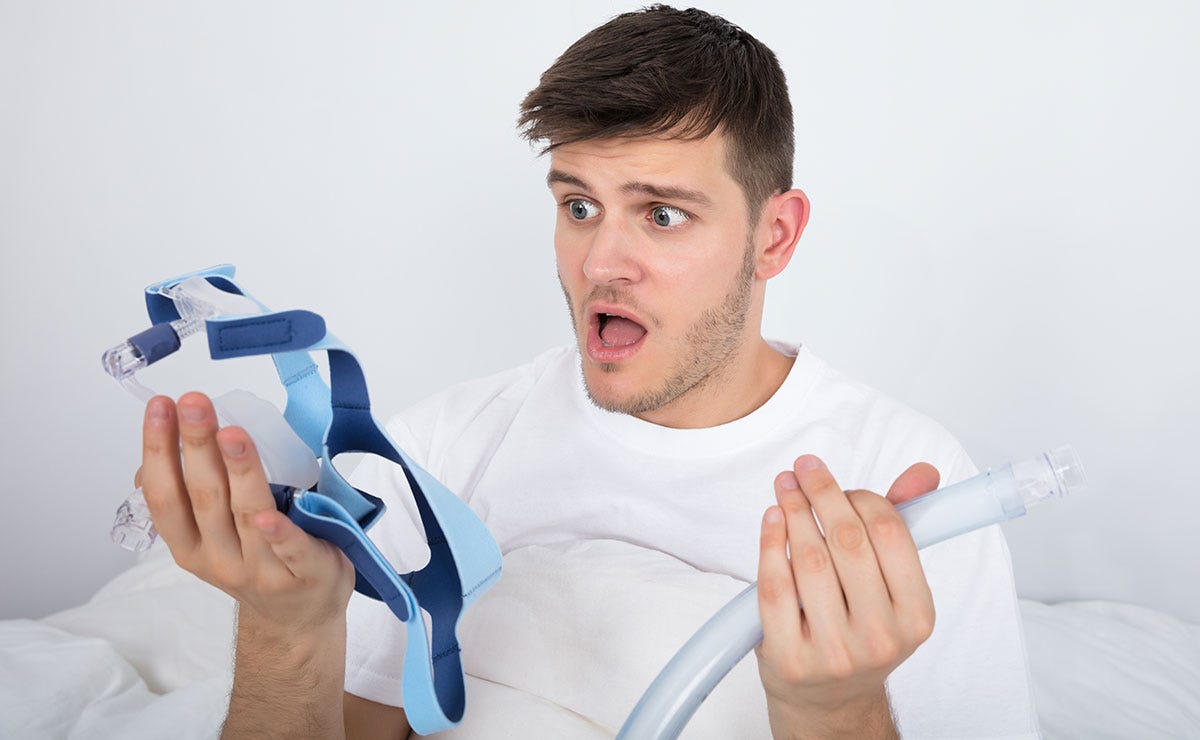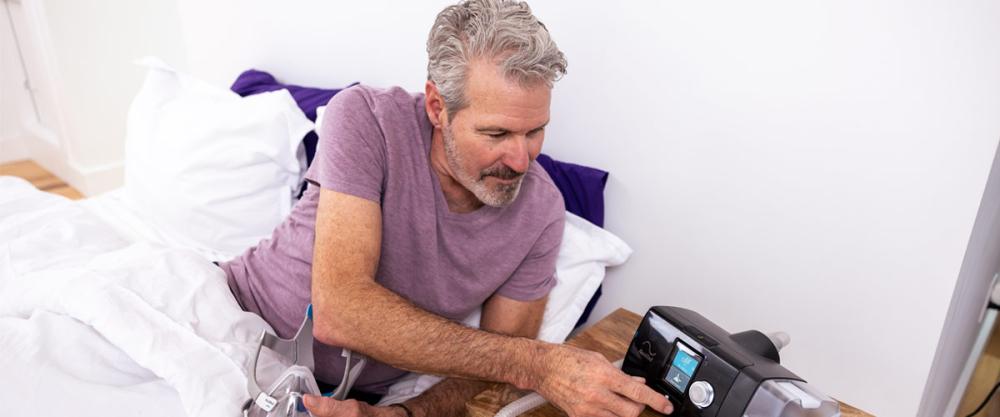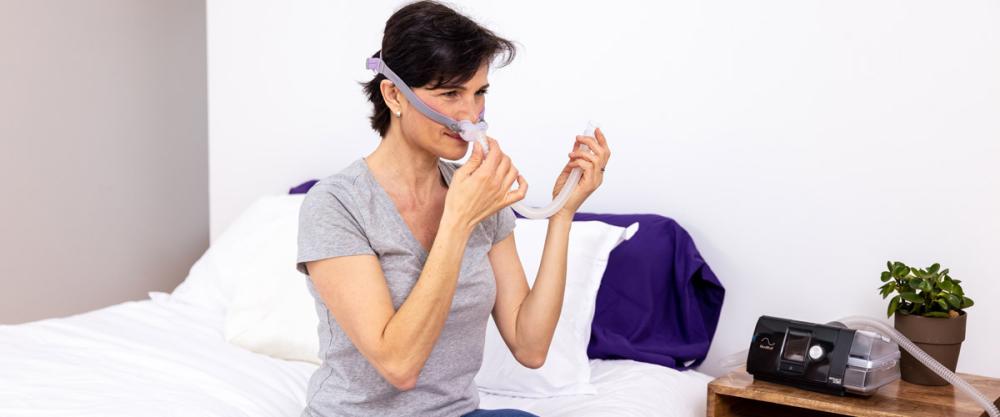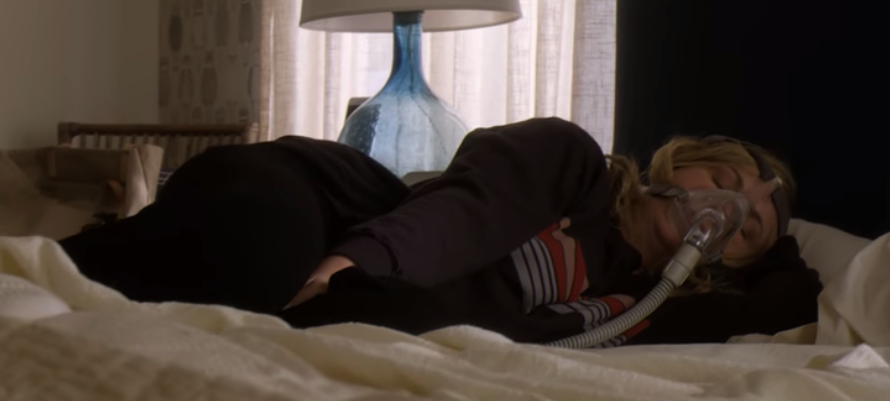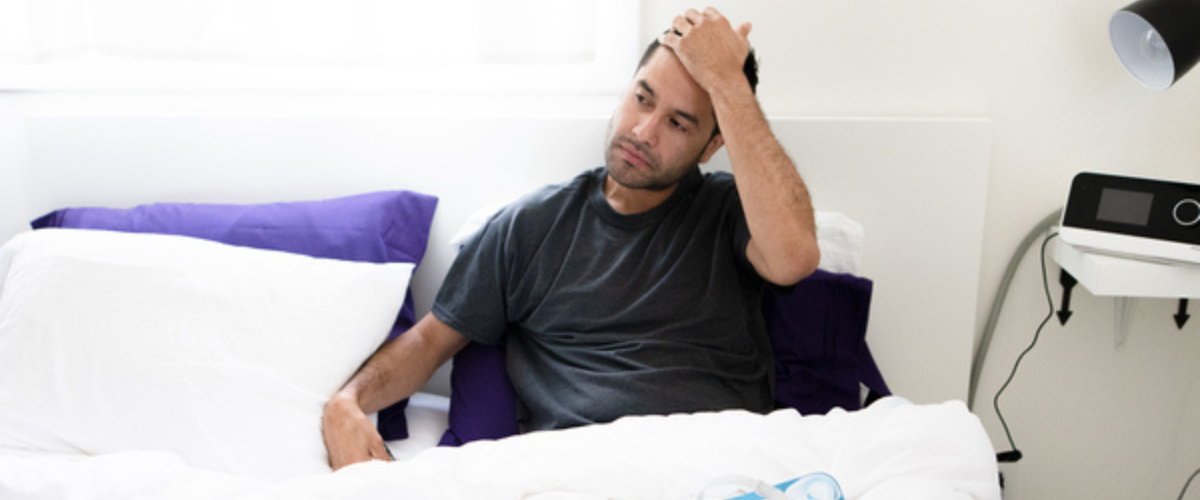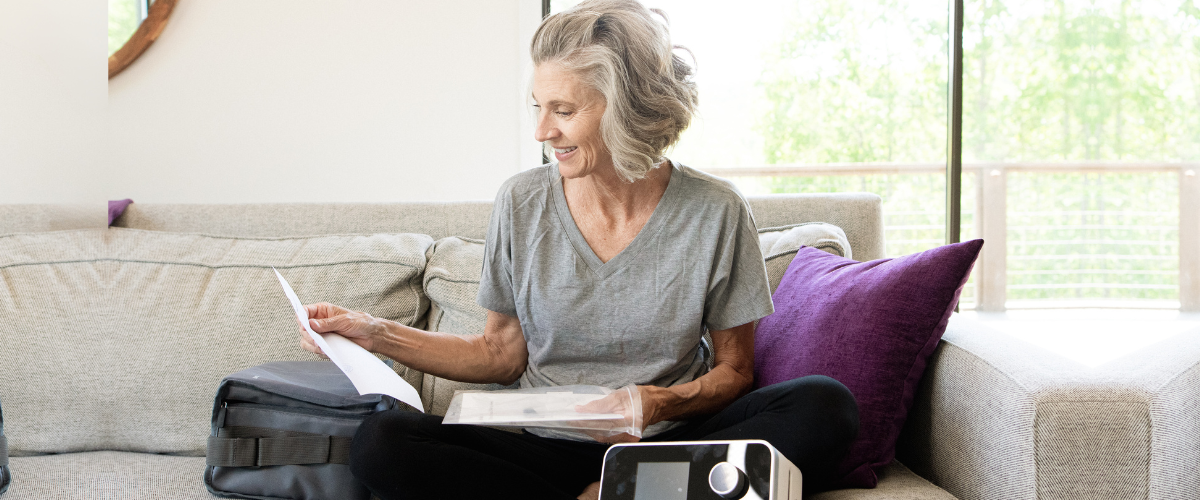What is sleep apnea? Could it be that I'm just tired more days than not? People all across the nation are afflicted with sleep apnea. They are waking up multiple times in the night, feel exhausted in the morning, and battle fatigue all day long.
Do not hit the snooze button, it is time to face your sleep disorder head-on. Learn how sleep apnea is diagnosed and treated.
Sleep apnea is actually one of a group of conditions headed under “sleep disordered breathing.” There are several types including obstructive sleep apnea OSA, which is the most common form of sleep disordered breathing. There are others including Central sleep apnea, Upper Airway Resistance Syndrome, Complex Sleep Apnea and Hypoventilation Syndromes, and simple snoring. For some clarification, obstructive sleep apnea occurs when a patient’s airway is blocked (or obstructed) during sleep. Central sleep apnea occurs when the brain does not tell the body to breathe when sleeping. Complex sleep apnea is a combination of the two.
Common symptoms of obstructive (the most common) sleep apnea are snoring, gasping and awakening, choking, pauses in breathing and tiredness the following day. Sometimes a person with sleep apnea will also experience insomnia, depression and morning headaches. There are other health conditions doctors have found to be related to sleep apnea as well, including hypertension, diabetes, heart disease, depression and stroke.
Sleep apnea symptoms can be hard to catch because they occur during sleep. Most people are unaware that they have an issue unless their spouse alerts them to their loud snoring or gasping for air.
However, sleep apnea side effects are also quite common during the day and include waking with a headache, having a sore throat or dry mouth, daytime fatigue, irritability, decreased focus, insomnia, and waking up due to choking or gasping. Again, please note that snoring is the number one sign, especially for OSA.
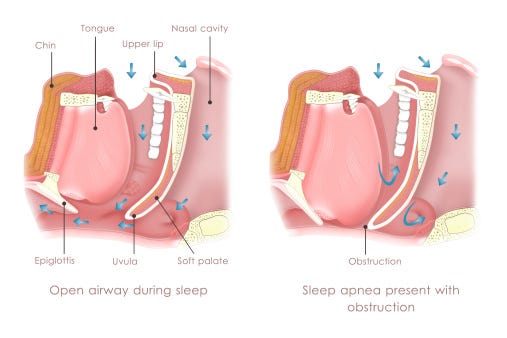
If you think you may be at risk, then the sooner you get tested the better. Sleep apnea really takes a toll your quality of life. Also, when left untreated it can contribute to major health issues such as diabetes, stroke, depression, high blood pressure, diabetes, depression, obesity and heart issues including heart attacks, irregular heartbeats, Alzheimer's disease, and heart failure.
Sleep apnea is dangerous, but luckily it's not too difficult to diagnose. All that is required is an overnight test, which can be done a few different ways. People have the option of taking a nocturnal polysomnography test, which involves going to a doctor’s office for a lengthy stay. This method is often considered to be uncomfortable as patients have to try and rest in an unfamiliar office while being attached to tubes.
However, the other testing method involved the comfort of your own home. CPAPSupplies.com offers a home sleep test and it's easy to get started. Take the quick, free assessment about your symptoms to determine if an appointment with a board-certified sleep physician is the right next step
There are a variety of sleep apnea treatment methods based on the severity of the condition. These treatments range from simple lifestyle changes to using airway devices. A few of the most common treatments include:
Healthy Lifestyle Changes and Self Remedies - If you are overweight you may be asked to start living a more active lifestyle to shed a little weight. Even a slight loss can reduce restriction on your throat. Also, you may be asked to stop smoking as it worsens OSA, and to avoid alcohol.
Sleeping on your side or stomach instead of your back may also help. Plus, the use of saline sprays or nasal decongestants to keep your nasal nasal passages clear of blockages may be recommended.
CPAP Device - Therapies that involve the use of a continuous positive airway pressure (CPAP) device. This sleep apnea treatment method is actually the most common and most effective way to manage this sleep disorder.
As a patient sleeps with a CPAP mask, it will deliver air pressure that is just strong enough to keep their upper airway passages open to prevent snoring and apnea.
CPAP machines have been developed over the years to become more comfortable and to fit the individual needs of patients. CPAPSupplies.com can use your prescription information to help you find the best fit.
Other Apnea Machines - In some cases a CPAP is not the best treatment option. Other machines like the BiPAP which supplies bilevel positive airway pressure, oral appliances such as retainers to keep the throat open, and the expiratory positive pressure (EPAP) that allows air to moves freely into your nostrils, but increases pressure as you exhale by sending your air through a valve.
Sleep Apnea Surgery - In some cases surgical options are available to correct apnea issues. Patients may have their jaw repositioned to move it forward in order to enlarge the space behind your soft palate. Also, tissue removal to remove tissue from the top of the throat is quite common.
In some cases a tracheostomy may be performed to create a new passageway or nasal surgery to correct a deviated septum will resolve the issue. Other sleep apnea treatments include weight loss surgery and surgery to remove enlarged tonsils.
So, what is sleep apnea? Well, now you know it is the major condition affecting people of all ages, including children and young adults, while most of them don’t even know they have it. When left untreated it can turn into much more than a sleep disorder as it causes major health issues.
However, why wait? With a simple at-home test you can easily take the steps to treat your apnea to greatly improve your quality of life.
Do not hit the snooze button, it is time to face your sleep disorder head-on. Learn how sleep apnea is diagnosed and treated.
What Is Sleep Apnea?
Sleep apnea is actually one of a group of conditions headed under “sleep disordered breathing.” There are several types including obstructive sleep apnea OSA, which is the most common form of sleep disordered breathing. There are others including Central sleep apnea, Upper Airway Resistance Syndrome, Complex Sleep Apnea and Hypoventilation Syndromes, and simple snoring. For some clarification, obstructive sleep apnea occurs when a patient’s airway is blocked (or obstructed) during sleep. Central sleep apnea occurs when the brain does not tell the body to breathe when sleeping. Complex sleep apnea is a combination of the two.
Common symptoms of obstructive (the most common) sleep apnea are snoring, gasping and awakening, choking, pauses in breathing and tiredness the following day. Sometimes a person with sleep apnea will also experience insomnia, depression and morning headaches. There are other health conditions doctors have found to be related to sleep apnea as well, including hypertension, diabetes, heart disease, depression and stroke.
Sleep apnea symptoms can be hard to catch because they occur during sleep. Most people are unaware that they have an issue unless their spouse alerts them to their loud snoring or gasping for air.
However, sleep apnea side effects are also quite common during the day and include waking with a headache, having a sore throat or dry mouth, daytime fatigue, irritability, decreased focus, insomnia, and waking up due to choking or gasping. Again, please note that snoring is the number one sign, especially for OSA.

If you think you may be at risk, then the sooner you get tested the better. Sleep apnea really takes a toll your quality of life. Also, when left untreated it can contribute to major health issues such as diabetes, stroke, depression, high blood pressure, diabetes, depression, obesity and heart issues including heart attacks, irregular heartbeats, Alzheimer's disease, and heart failure.
Sleep Apnea Testing
Sleep apnea is dangerous, but luckily it's not too difficult to diagnose. All that is required is an overnight test, which can be done a few different ways. People have the option of taking a nocturnal polysomnography test, which involves going to a doctor’s office for a lengthy stay. This method is often considered to be uncomfortable as patients have to try and rest in an unfamiliar office while being attached to tubes.
However, the other testing method involved the comfort of your own home. CPAPSupplies.com offers a home sleep test and it's easy to get started. Take the quick, free assessment about your symptoms to determine if an appointment with a board-certified sleep physician is the right next step
Sleep Apnea Treatment
There are a variety of sleep apnea treatment methods based on the severity of the condition. These treatments range from simple lifestyle changes to using airway devices. A few of the most common treatments include:
Healthy Lifestyle Changes and Self Remedies - If you are overweight you may be asked to start living a more active lifestyle to shed a little weight. Even a slight loss can reduce restriction on your throat. Also, you may be asked to stop smoking as it worsens OSA, and to avoid alcohol.
Sleeping on your side or stomach instead of your back may also help. Plus, the use of saline sprays or nasal decongestants to keep your nasal nasal passages clear of blockages may be recommended.
CPAP Device - Therapies that involve the use of a continuous positive airway pressure (CPAP) device. This sleep apnea treatment method is actually the most common and most effective way to manage this sleep disorder.
As a patient sleeps with a CPAP mask, it will deliver air pressure that is just strong enough to keep their upper airway passages open to prevent snoring and apnea.
CPAP machines have been developed over the years to become more comfortable and to fit the individual needs of patients. CPAPSupplies.com can use your prescription information to help you find the best fit.
Other Apnea Machines - In some cases a CPAP is not the best treatment option. Other machines like the BiPAP which supplies bilevel positive airway pressure, oral appliances such as retainers to keep the throat open, and the expiratory positive pressure (EPAP) that allows air to moves freely into your nostrils, but increases pressure as you exhale by sending your air through a valve.
Sleep Apnea Surgery - In some cases surgical options are available to correct apnea issues. Patients may have their jaw repositioned to move it forward in order to enlarge the space behind your soft palate. Also, tissue removal to remove tissue from the top of the throat is quite common.
In some cases a tracheostomy may be performed to create a new passageway or nasal surgery to correct a deviated septum will resolve the issue. Other sleep apnea treatments include weight loss surgery and surgery to remove enlarged tonsils.
Wake Up And Stop Sleep Apnea
So, what is sleep apnea? Well, now you know it is the major condition affecting people of all ages, including children and young adults, while most of them don’t even know they have it. When left untreated it can turn into much more than a sleep disorder as it causes major health issues.
However, why wait? With a simple at-home test you can easily take the steps to treat your apnea to greatly improve your quality of life.

